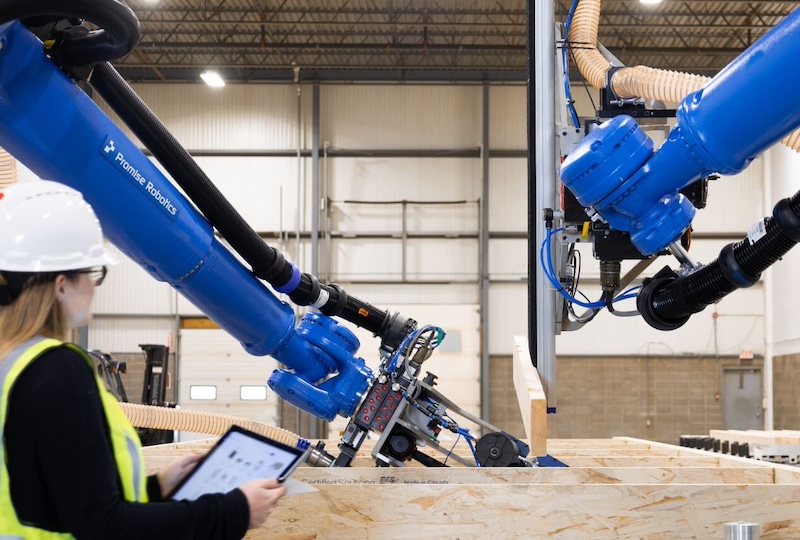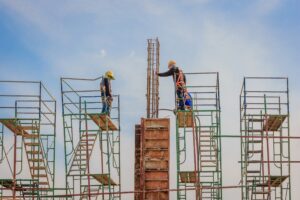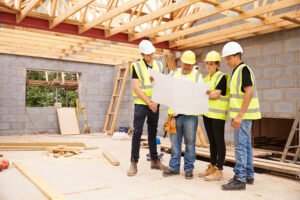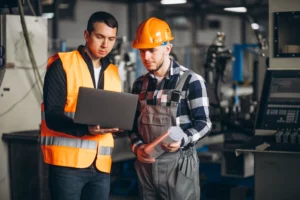
From Automation to AI: The Technological Evolution of the Construction Industry
The construction industry stands on the cusp of a technological revolution, marking a pivotal shift from traditional manual methods to a future where artificial intelligence (AI) and automation become the backbone of construction projects. This transformation is not just about adopting new tools; it’s about redefining the entire construction process, making it smarter, safer, and more efficient.
The Dawn of Automation in Construction
The Early Adopters
Early adoption of automation in construction paved the way for significant advancements in efficiency and safety. Automated machinery and equipment have reduced the reliance on manual labor for repetitive and hazardous tasks, thereby minimizing risks and improving productivity.
Impact on Efficiency and Safety
The integration of automation technologies has led to remarkable improvements in project timelines and worker safety. With machines taking over tasks such as bricklaying and concrete pouring, projects are completed faster and with fewer accidents.
Integrating Advanced Technologies
Robotics on Site
Robots are increasingly becoming a common sight on construction sites, performing tasks ranging from structural assembly to intricate installations. Their precision and ability to work in challenging environments amplify the potential for innovation in construction.
The Role of Drones
Drones are revolutionizing site surveys and inspections, offering a bird’s-eye view that enhances accuracy and detail in planning and monitoring, thus streamlining the construction process.
The Rise of Artificial Intelligence
AI for Design and Planning
AI applications in design and planning are transforming the way architects and engineers approach construction projects. From generating optimal designs to simulating construction scenarios, AI is a game-changer in pre-construction stages.
Predictive Analytics and Risk Management
Leveraging AI for predictive analytics allows for anticipating potential delays and risks, enabling proactive measures to mitigate them. This foresight significantly reduces the chances of project overruns and enhances decision-making.
Data-Driven Decision Making
Harnessing Big Data
The construction industry generates vast amounts of data. By harnessing this data, companies can gain insights into project performance, worker productivity, and operational efficiencies, driving informed decision-making.
Improvements in Project Management
Data analytics tools are improving project management by providing real-time updates and insights, facilitating better coordination, and ensuring projects stay on track and within budget.
Enhancing Construction with IoT
Smart Construction Sites
The Internet of Things (IoT) is making construction sites smarter and more connected. Sensors and devices collect data on everything from material conditions to equipment status, improving site management and safety.
IoT for Maintenance and Monitoring
Post-construction, IoT technologies play a crucial role in the maintenance and monitoring of buildings, ensuring longevity and energy efficiency through continuous performance data analysis.
The Impact of 3D Printing
Revolutionizing Building Structures
3D printing is set to revolutionize the way buildings are constructed, offering the potential for creating complex structures with reduced material waste and lower costs.
Customization and Waste Reduction
This technology allows for unparalleled customization in construction, enabling designs that were once considered too complex or costly, all while significantly reducing material waste.
Sustainability and Green Building
AI in Energy Efficiency
AI’s role in enhancing energy efficiency in buildings is critical in the push towards sustainability. By optimizing systems for energy use, AI contributes to the development of greener buildings.
Sustainable Materials and Practices
The industry is witnessing a shift towards sustainable materials and construction practices, driven by technological advancements and a growing awareness of environmental impacts.
The Future Workforce
Skills Evolution
The technological evolution demands a workforce that is not only skilled in traditional construction practices but also adept in digital technologies, requiring ongoing education and training.
Automation vs. Human Touch
While automation and AI are transforming the industry, the human touch remains irreplaceable in areas requiring creativity, intuition, and complex decision-making.
Challenges and Solutions
Navigating the Digital Transformation
The shift towards digitalization presents challenges, including the need for significant investment in technology and training. However, the long-term benefits of increased efficiency and competitiveness offer compelling reasons to embrace this transformation.
Addressing the Skills Gap
The rapid pace of technological advancement has resulted in a skills gap in the construction industry. Bridging this gap through education, training, and recruitment strategies is crucial for the future.
Conclusion
The technological evolution from automation to AI represents a significant leap forward for the construction industry. By embracing these advancements, the sector can achieve unprecedented levels of efficiency, safety, and sustainability. As we look to the future, the continued integration of AI, robotics, and other digital technologies will not only transform construction processes but also redefine what is possible in the built environment.
FAQs
- How is AI transforming the construction industry?
AI is revolutionizing the construction industry by improving efficiency, accuracy, and safety through advanced data analytics, machine learning for design and planning, and automation of repetitive tasks. - What are the benefits of automation in construction?
Automation enhances construction efficiency, reduces human error, and significantly improves safety by taking over high-risk and repetitive tasks, leading to faster project completion and cost savings. - Can AI and robotics replace human workers in construction?
While AI and robotics significantly augment the construction process, they cannot fully replace human workers due to the need for complex decision-making, creativity, and adaptability in various scenarios. - How do drones contribute to construction projects?
Drones offer aerial surveillance, enabling precise site surveys, real-time progress tracking, and improved safety by accessing hard-to-reach areas without putting workers at risk.




